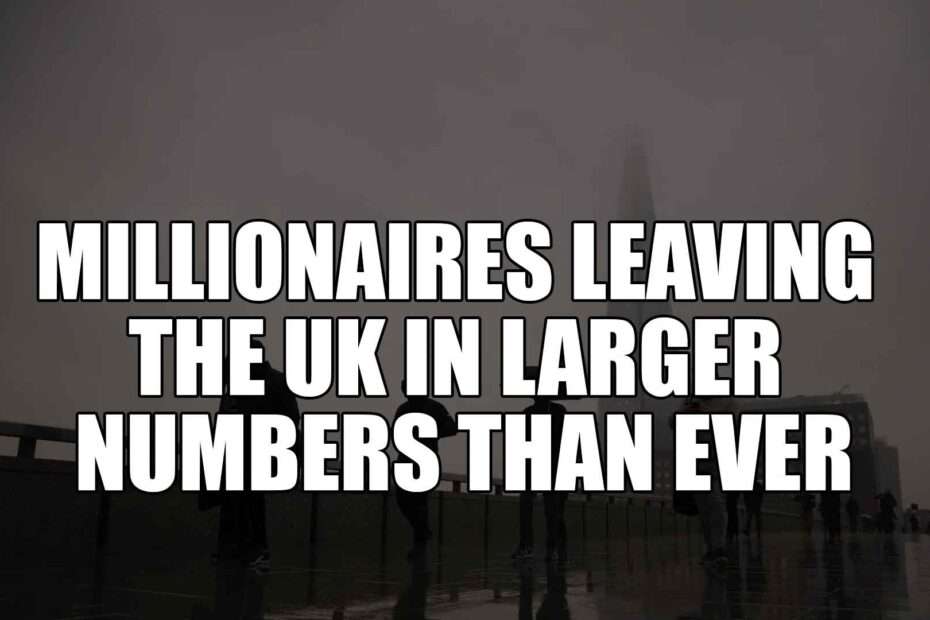Millionaires leaving the UK in larger numbers than ever
Middle‑class families stream from Britain towards the Med as ‘golden‑visa’ demand soars
Since Labour’s election victory last summer, southern European nations have witnessed a notable surge in interest from British middle‑class households seeking residency options. Official data reveals that golden‑visa applications from the UK have climbed significantly in countries like Greece and Portugal—a trend driven by growing unease over Chancellor Rachel Reeves’s plans for further tax increases this autumn.
Experts monitoring migration patterns have observed a distinct shift: not only the ultra‑wealthy, but also middle‑income families, remote‑working professionals and retirees are exploring investment‑linked residency schemes. High taxation in the UK—driven by successive governments—has been cited as a principal motivator.
Rising golden‑visa applications in Europe
Greece now offers five‑year residency and a pathway to EU citizenship in exchange for a modest €250,000 property investment. In the year up to April, Greek authorities granted 626 golden visas to UK nationals—an increase of 46.6% from 427 the previous year, according to Astons, the investment‑immigration adviser.
Portugal follows a similar model and experienced a 66.2% surge in UK applications: rising from 234 in 2023 to 389 in 2024.
Alena Lesina—Astons’s specialist in residence permits and real‑estate investment—observes a widening applicant base:
“We’re increasingly advising middle‑class families, remote‑working professionals, and even retirees who are re‑evaluating their lifestyle priorities post‑pandemic.”
According to Lesina, motivations are diverse: lifestyle enhancement, long‑term planning, and the pursuit of mobility amid a volatile global environment.
Europe’s golden‑visa schemes: broader context
These programmes have grown in popularity even before recent UK tax announcements. Spain, for instance, recorded around 3,601 golden‑visa approvals for Britons in 2023, marking a nearly 70% rise from 2022—though its scheme has since closed.
Beyond Europe, the United Arab Emirates remains a major draw for UK residents. Its favourable cost of living, zero personal income tax and attractive visa options have enticed many seeking tax relief. UAE is projected to attract around 9,800 millionaires this year, becoming the top destination for wealthy migrants
Impact of UK tax policy on wealth flight
The surge in emigration interest correlates closely with domestic tax changes. Chancellor Reeves abolished non‑dom status last autumn and introduced stricter inheritance‑tax rules, sparking concerns among affluent Britons. Shadow Business Secretary Andrew Griffith warned that high earners and entrepreneurs are abandoning the UK in search of more favourable tax climates, potentially eroding HMRC receipts.
A Treasury spokesperson defended current policy, stating that the system remains progressive and aims to retain appeal for working families. They emphasised that the UK’s top capital‑gains‑tax rate is still lower than that of other G7 nations, and that income tax, National Insurance, VAT and other rates have remained unchanged since the autumn Budget.
Record millionaire exodus
A new Henley & Partners report reveals that the UK is poised to lose an unprecedented 16,500 millionaires in 2025—the largest net departure of millionaires for any country in Henley’s decade‑long records. These individuals collectively account for approximately £66 billion in investible assets.
While some analysts argue the figures may overstate actual movement—pointing to migration rates of only 0.6% of the UK’s millionaire population and critiquing Henley’s methodology—others stress the significance of losing high‑value taxpayers.
UK wealth flight: national implications
The departure of wealthy individuals is expected to impact public finances, as the Treasury may face losses in capital‑gains and inheritance tax revenues. Critics have warned that removing these tax contributors may undermine fiscal stability and dampen investment in high‑growth sectors.
In response, political parties on both the right and centre‑right are proposing countermeasures:
- Reform UK proposes a “Britannia Card”: a 10‑year residency permit available for a £250,000 fee, offering tax exemptions on overseas income and assets.
- The Conservative opposition is considering a revamped golden‑visa model that would include carve‑outs from Labour’s inheritance tax on global assets.
What lies ahead?
- Autumn tax shake‑ups: Chancellor Reeves is reportedly preparing further tax adjustments on businesses and workers to reinforce public finances this autumn.
- Policy reversals: Ongoing exodus concerns have reportedly prompted Reeves to contemplate relaxing certain aspects of the non‑dom abolition amid fears of a declining tax base.
- Global repositioning: With Britain now losing more millionaires than any other European nation, Labour faces pressure to balance progressive taxation with measures that retain wealth and entrepreneurial talent.
Conclusion
A growing wave of UK families—spanning middle‑class earners, remote workers, and retirees—are pursuing golden‑visa schemes in Greece, Portugal and beyond. This trend reflects anxiety around high domestic taxation, shifting lifestyle aspirations and global mobility. The UK now confronts a pivotal test: can it sustain a competitive tax and lifestyle environment while funding essential public services? The coming months—shaped by autumn’s fiscal policies—may determine whether this trend is temporary or transformative.

